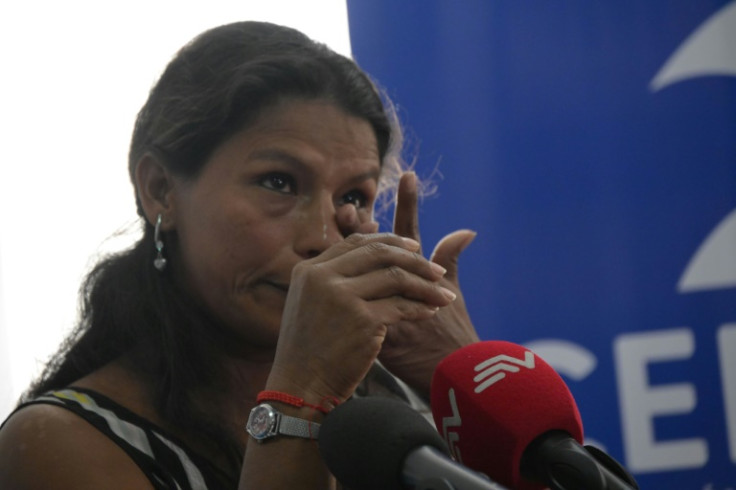
Ex-employees of a Japanese textile company in Ecuador told Tuesday of their dire living and working conditions, after the country's constitutional court ruled the firm kept its staff in a slave-like setting.
Some gave birth to children in unsanitary and overcrowded camps, while others were denied proper medical attention after work-related injuries, according to testimonies given at a news conference in Quito.
Justices last week ordered the company, Furukawa, to pay $120,000 to each of the 342 victims -- a total of around $41 million. It will also have to make a public apology to them.
As of 2021, Furukawa's plantations for abaca -- a fine plant fiber -- covered almost 23,000 hectares spread over three provinces on the Pacific coast, where the majority of the population is Black.
"We have been confronting the monster that is Furukawa," Segundo Ordonez, a 59-year-old farmer, told Tuesday's meeting at the headquarters of Ecuador's Ecumenical Human Rights Commission (CEDHU).
He recalled a lack of medical attention on the plantations, where nine people died in work-related accidents.
"A friend was cut, we were working in a downpour. That was the most anger I felt, seeing him shedding blood like an animal and nobody doing anything," Ordonez said.
Maria Guerrero recounted that her parents took her and six siblings to the Furukawa crops when she was two years old. She knew no other place for three decades and met her husband there, with whom she had seven children.
"I gave birth to all my children in the company, I did not have a postpartum check-up or a medical check-up during my pregnancy. It is something I will always carry in my heart as a wound," the 39-year-old said.
Furukawa contested the constitutional court's decision, arguing that there were inconsistencies and asking for a downward revision of the financial compensation ordered, which it deemed impossible to comply with.








